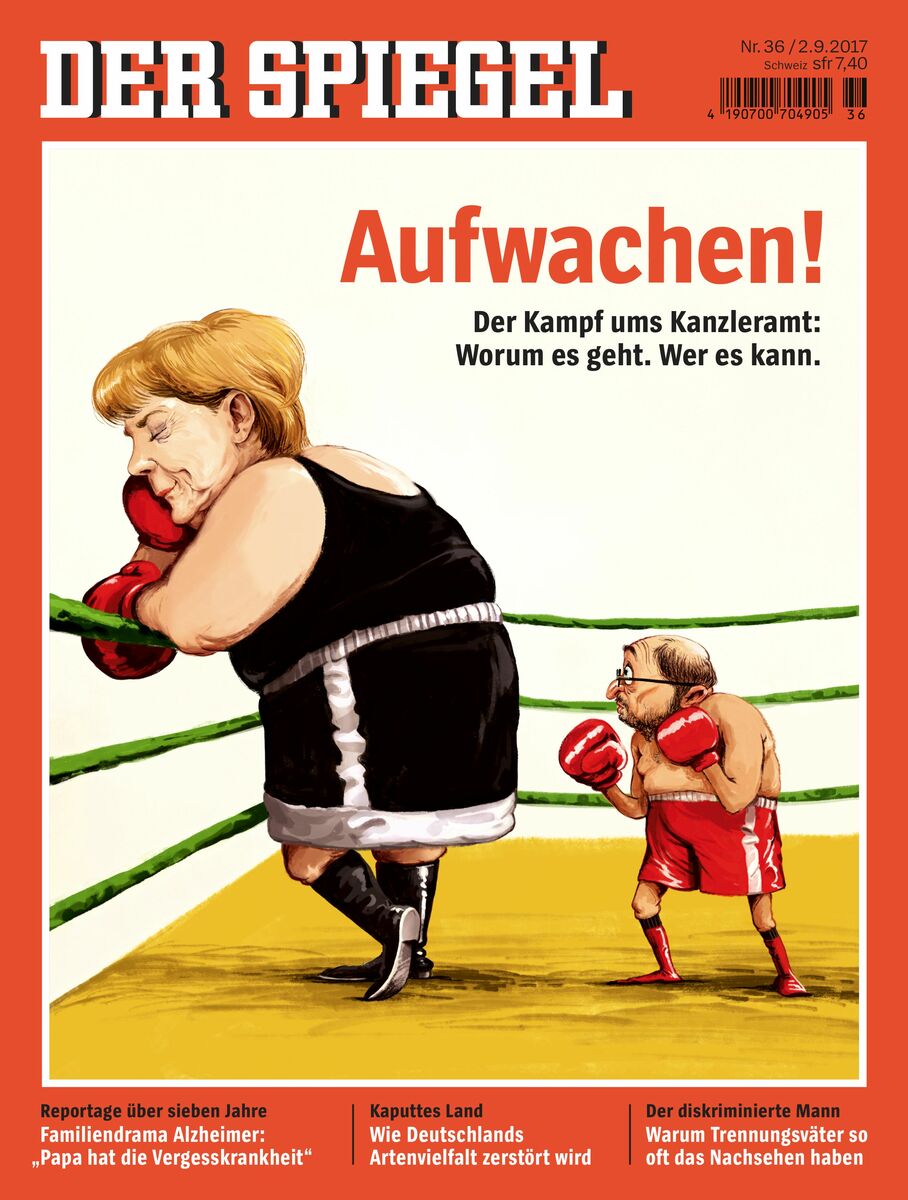Source

Source: Spiegel cover, September 2, 2017
In the 2017 Bundestag elections, both the CDU/CSU under Angela Merkel and the Social Democrats, who were part of Merkel’s grand coalition government between 2013 and 2017, suffered significant losses. The CDU/CSU lost 8.5 % in comparison to 2013 and the SPD lost 5.2%. The far-right Alternative for Germany (AfD), in contrast, gained 12.6 % of the votes and 87 seats in parliament. According to many analysts, the rising support of right-wing anti-immigrant and racist positions in opposition to Merkel’s liberal refugee policies contributed to the party’s gains and to the losses of both the CDU and the SPD. Despite these losses, Merkel was elected for a fourth term and formed another grand coalition government with the SPD after coalition negotiations with other parties failed. This caricature on the cover of the magazine Der Spiegel depicts the election as a boxing match in which the superior title holder Merkel is dozing on the ropes of the boxing ring while her challenger, SPD candidate for chancellor Martin Schulz, is portrayed as tiny and essentially without a chance.

Source: Spiegel cover, September 2, 2017
© Spiegel Verlag